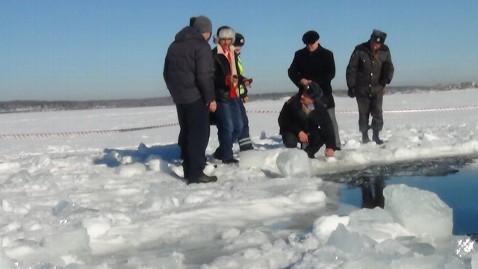NEW DELHI: Millions of India's workers walked off their jobs on Wednesday in a two-day nationwide strike called by trade unions to protest at the "anti-labour" policies of the embattled government.
Financial services and transport were hit by the strike called by 11 major workers' groups to protest at a series of pro-market economic reforms announced by the government last year, as well as high inflation and rising fuel prices.
Prime Minister Manmohan Singh had appealed to unions to abandon the strike, the latest in a string of protests against liberalisation, warning it would cause a "loss to our economy" already poised for its slowest annual growth in a decade.
But talks following Singh's appeal this week collapsed after the government refused to bow to union demands to roll back the reforms, which are aimed at jumpstarting the economy and averting a downgrade in India's credit rating.
"The workers are being totally ignored and this is reflected in the government's anti-labour policies," said Tapan Sen, general secretary of the umbrella Centre of Indian Trade Unions.
The government's "big ticket" reforms include opening the retail, insurance and aviation sectors to wider foreign investment, raising prices of subsidised diesel used by farmers and reducing the number of discounted cooking gas cylinders.
The steps aim to free up the still heavily state-controlled economy and reduce India's ballooning subsidy bill and fiscal deficit. But they have stirred anger in some areas, especially among the poor.
"The last time that we called a strike (in February 2012), nearly 100 million workers participated. This time we're expecting a bigger number," Sen told AFP.
The Associated Chambers of Commerce and Industry estimated losses from the strike at around 200 billion rupees (US$3.7 billion).
"The national economy... can ill afford this situation. In fact, the strike would aggravate the price situation because of disruption in supply line of essential commodities," the chamber said in a statement.
The strike's impact appeared to be the greatest in the eastern state of West Bengal and the southern state of Kerala where banks, schools and the transport sector were hit.
Flag-waving protesters stopped trains and staged noisy demonstrations in the eastern states of Orissa and Bihar. A trade union leader was crushed by a bus that he was trying to stop in Ambala district in the northern state of Punjab.
In Mumbai, the financial sector was crippled with government banks, insurance companies and workers at other businesses taking part in the stoppage.
The strike comes a day before the start of parliament's budget session, which is likely to be disrupted by the opposition parties over allegations of kickbacks in a US$748 million government contract for Italian helicopters.
-AFP/fl










